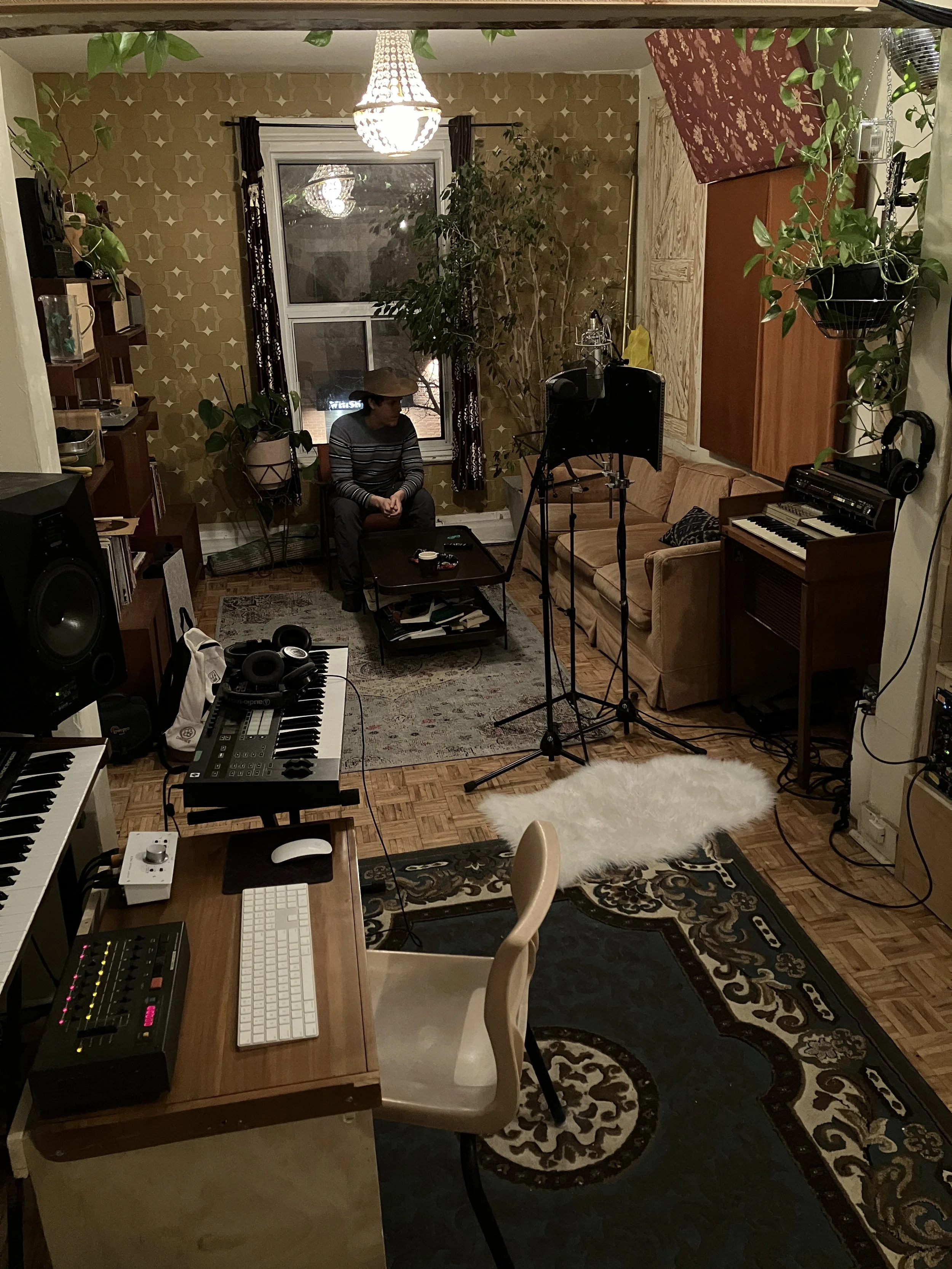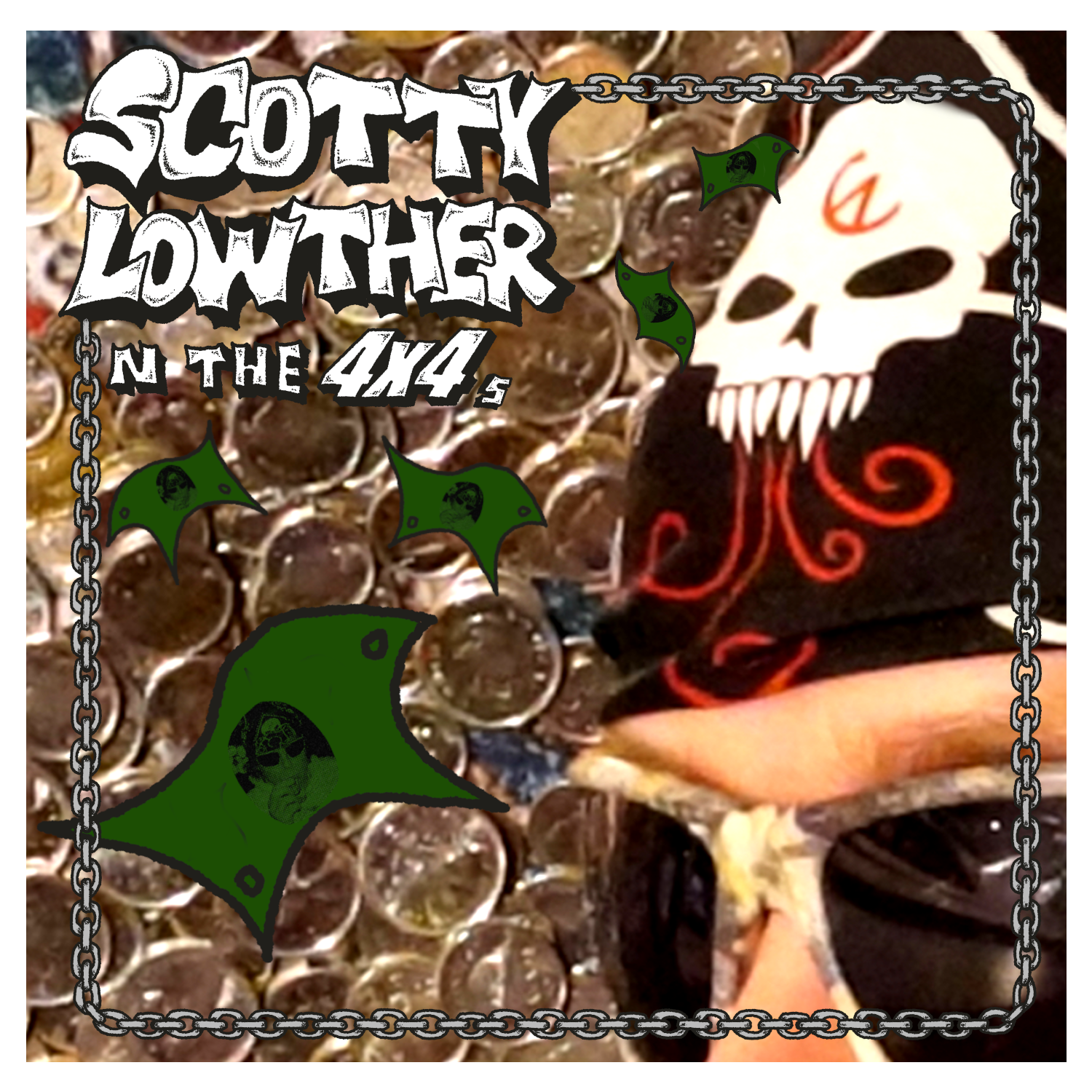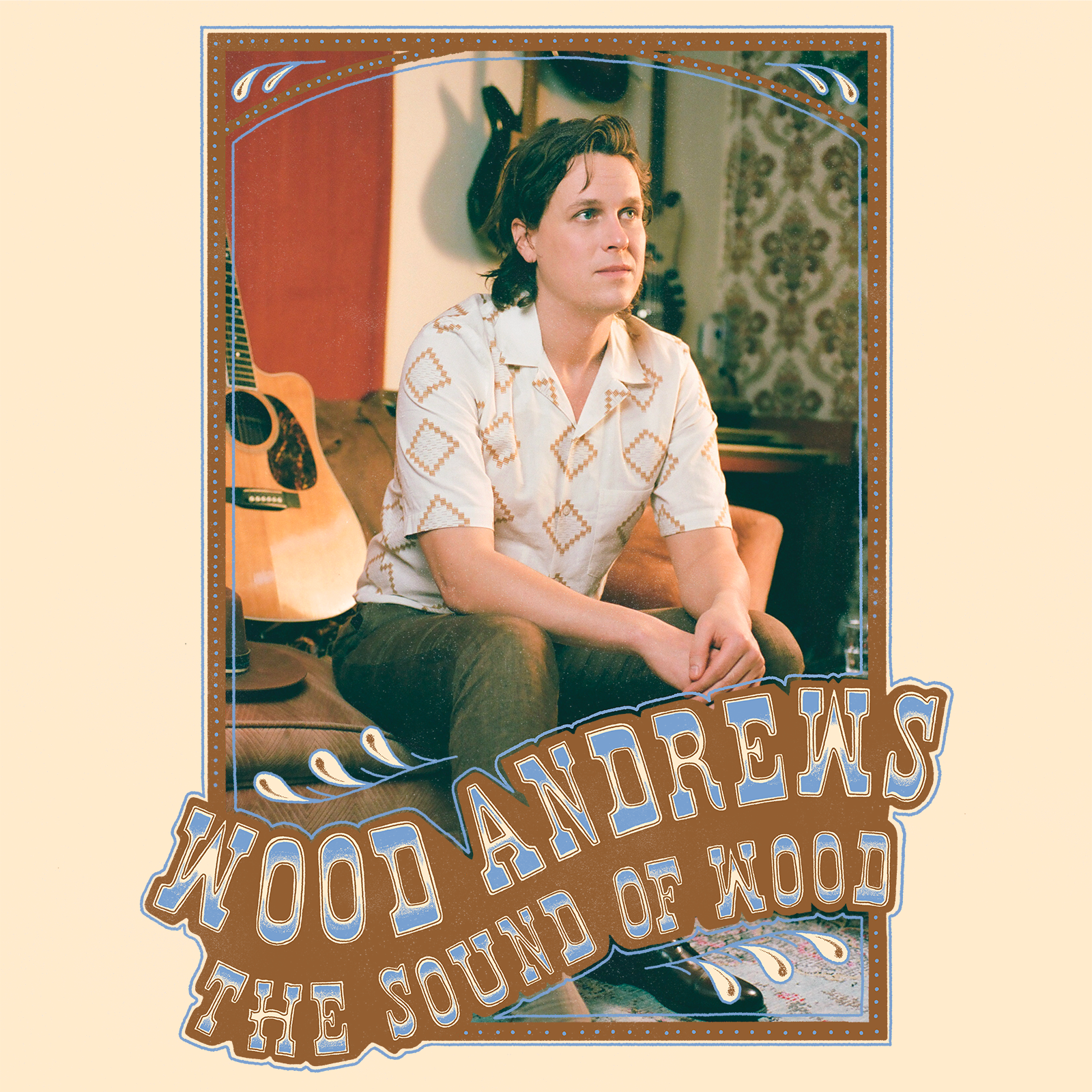Wood Andrews - An Artist Of Many Faces
Andrew Woods’ Mile-End studio is located on the same street corner, and in the same building, where Arcade Fire, Stars, Operators, and others have recorded some of the best music to come out of this city. In 2021, in the midst of the pandemic, Woods (of Wood Andrews, Scotty Lowther N The 4x4s, House Magic, Napster Vertigo, Wider Smile, and Boxer The Horse) crammed his equipment into his car, with help of longtime friend and collaborator Monty Monro, and drove it to his home province of Prince Edward Island, where he began working on Wood Andrews’ debut album, The Sound of Wood.
Sitting with Andrew on a rainy Tuesday morning to chat about his music, his inspirations, and his process, the first thing I wondered was how so much kindness made its way onto the record. “I feel that kindness is just one of those things that’s really difficult to discuss in a conversation, because everybody agrees. Everybody goes ‘yeah, you should be kind. Of course!’. But it’s hard to put the definition of what it means to be kind or what it means to be caring in that conversation. I think creativity and art give you a chance to define those things. And I’m kind. Or I try to be kind. I feel like kindness is king. Kindness is the thing that we’re all actually trying to teach each other in a way.”
I’ve always been a fan of song lyrics that give the listener a lot of sensory information, so Andrew’s storytelling really does it for me. There’s a truth to his lyrics that I love. I ask him if the stories he sings are based on real-life events. “I really enjoy using the character of Wood Andrews as a slight shield from my actual normal regular life. It’s a little bit more of an exciting version. Some of the songs [like Sunsets] are accurate to my life. [But] I don’t think any of them are things that are impossible. If I wrote about something that didn’t happen to me, it’s because it’s something that could’ve happened to me.”
The realism and honesty of Wood’s lyrics doesn’t feel like metaphor. When he sings about finding a flower on the side of the road, putting it in his pocket, and bringing it to his wife back home, we can vividly imagine that’s what he did.
“I realized at a certain point as a singer-songwriter that in order to sound the way I wanted to sound, I needed to be able to fully stand behind every word. Every word on the album is something I would say. When I play a show, I love standing up in front of the crowd and saying - even if I don’t feel like it at the moment : ‘I forgot to say I love you, to my family and friends’. I’ve given myself this chance to say that statement out loud.”
At each live performance of The Sound of Wood that I’ve seen, the excitement of the crowd was tangible. If you haven’t seen him perform live yet, I strongly suggest you rectify that. Andrew is a friendly performer, kind and gracious. But every good thing needs its opposite, that balance, and for Wood Andrews, that would be Scotty Lowther, a very dubious character. “‘Bad Habits' is a character study. I wrote it, literally, to introduce the character of Scotty Lowther to my show. I knew I wanted to set up my show in this way. Where there was a good guy and a bad guy. A face and a heel.”
At a typical Wood Andrews show, Wood and his band will be performing songs from his album, smiles all around, and the crowd will be really enjoying it, then he’ll suddenly remember that forgot something backstage, or he’ll want to get a different guitar. The show is then sabotaged by Scotty and his gang of grunts called the 4x4s, usually leaving Wood tied-up off-stage until he returns to save the day.
Scotty Lowther and Wood Andrews go way back, sharing the same hometown. Scotty also released an album on the same day as Wood (coincidence?) called Disposible Music. Sometimes, when speaking with Andrew, I’m not sure if I’m speaking with Andrew, Wood, or Scotty. I asked Andrew to tell me more about the reason behind Scotty.
“Oh, Scotty’s a big time outlet. Leading into making music and getting into this concept that I am an artist of many faces, I wasn’t ready to deny my troll side. My disturber, disrupter side. That’s where Scotty came in. And he became an outlet for me to get to go on stage and be a troll in real time. There’s something great about an edgy performance. I like a performance that’s dangerous in a sense. In a musical and performance sense, not in a violent sense. So Scotty is a lot of fun for me to do.”
Andrew plays with a different lineup of musicians almost every time that he takes the stage. In the handful of times I’ve seen him, I recognized a few musicians as regulars of the Wood Andrews backing band, but when he plays in PEI or Vancouver, the band is unrecognizable (to the Montreal crowd). The sound, however, stays the same.
“I started booking shows when I was 16. And then when I joined my first band I was the manager by default. I got to a certain point in my musical career where I realized that this is the greatest asset for a singer to have - to be well organized. The singer often ends up being the administrator, when there’s no manager in place, you know? I think I would give some of this credit to having a therapist dad. I feel like I started to realize quite early on that I can roll with a lot of different people. Everyone I collaborate with, I just wanna try to bring out the best in them."
On “You Can’t Renovate Me” Wood sings about leveling up in his life. It’s easily the most inspiring song on the album. The tune has a simple premise - the speaker compares himself to a house. The house can be renovated, but the singer can’t. Yet the story ultimately ends with a renovated Wood Andrews enjoying the perks that come with being a better man.
“A lot of the self-help jargon is a sincere interest of mine. Concepts like self-esteem, self-love, flexibility, being able to change. I’ve always embraced all those things.” Andrew said about the song. “It’s first and foremost supposed to be a comedy song in the style of some of the greats. Talking about a high brow subject but using a low brow language.”
Toward the end of our conversation, I admitted to Andrew that - being a self-proclaimed romantic - love songs had been my favourite. I asked him why so many of his songs were love songs. “I think it’s really important for artists to touch on the big topics. I think it’s the responsibility of each generation’s writers to say: ‘Here’s what love means to me in this moment.’ So, I try to define it in the most honest way that I can. Love feels different in each generation’s context. But there’s also a similar theme throughout it. I like writing on giant topics.”
The Sound of Wood has a love interest present in almost every song. When asked about the positive influence of Basia Bulat - his wife and a significant musician in the Montreal music scene - on his music and his life, Andrew tells me, “It’s been the best thing ever. She’s been the most supportive person in my life. We dream together, we make plans together.”
The next Wood Andrews performance will be alongside Marlaena Moore at “Spectacle: A Grand Ole Time!” on April 20th at Theatre VME. This will be an intimate sit-down show in a space typically used for improv and sketch comedy. There will be comedians performing, and Marlaena and Wood Andrews will each perform a set arranged specifically for this event.
Highlights from “The Sound of Wood”
Sunshine - Music Video
Can’t Renovate Me
I Forgot to Say I Love You
Flower In Your Pocket
Highlights from “Disposible Music”
Stoned On The Water
Cash
Stairway




